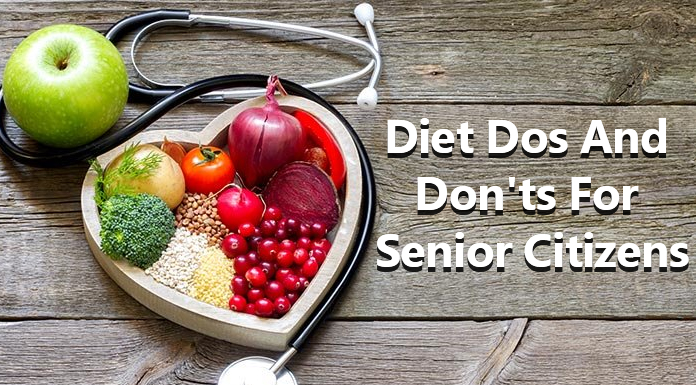
Diet Dos And Don’ts For Senior Citizens
As you grow older, the nutrition needs of your body changes. Eating well is the key for seniors to stay active and stay independent. Give your body the nutrition it needs and you can prevent several age related health issues such as diabetes or even heart conditions.
There are a few things that happen as you age that changes the meaning of healthy eating:
- Metabolism slows down with age, which means that you need fewer calories than before.
- Some nutrients such as calcium become the priority, making it necessary to prioritize them in your diet as well.
- The ability of your body to digest certain foods changes and as a result you need to make alterations in your diet accordingly.
- Your appetite changes and you may be eating lesser than needed, compromising on several necessary nutrients.
Here are some dos and don’ts for senior citizens to help you choose a better diet
Do’s of healthy eating for seniors
- According to the USDA, your plate must contain enough vegetables and fruits to fill half of it. The other half must be reserved for proteins, carbohydrates and fiber. This helps keep your digestion intact with a good source of fiber and also loads your body with minerals and vitamins that are essential as you age.
- Consume foods that have a lower level of sodium.
- Choose whole grains. These foods are rich in nutrients and are loaded with fiber. As a result, your digestion improves and your heart also stays protected. Instead of refined grains, choose whole wheat, brown rice and other whole grains.
- Water is a must. You need to avoid drinking beverages that are high in their caffeine content. Instead, drink water, fresh juices, soups or choose fruits and vegetables such as watermelons, cucumber and grapes that are very high in their water content.
- Your proteins should come from lean sources such as fish, eggs, beans or nuts. Avoid red meat as it can be heavy on your digestive system. These meats are also loaded with unhealthy fats that affect heart health.
- Calcium is a must. Low fat dairy products can be a staple in your diet. If not, you can even include a calcium supplement recommended by your doctor to get the daily required intake of this nutrient.
- B12 must be included in your diet. As you age the body is unable to absorb B12 through food as effectively as before. As a result, you may have to rely on supplements to meet your requirements. The foods that are rich in B12 are lean meat and cereals.
- Vitamin K is essential to keep your immune system functioning well. Green leafy vegetables such as spinach and kale should be included in your diet.
Don’ts of healthy eating for seniors
- Never make any dietary changes without consulting your doctor first. If you are on medication, eating certain foods may lead to harmful interactions. For instance, grapefruit reduces your ability to metabolize certain medication.
- Do not choose foods that are high in sugars or fats. Fats are necessary for several functions in your body. Choose healthier options like avocado, nuts and olive oil to fulfill your body’s requirements.
- Processed foods are loaded with empty calories and nutrients like sodium that can be harmful in old age. Make sure that you avoid them completely.
It is also necessary to avoid a sedentary life to ensure that a nutrient rich diet is absorbed well by your body. Walking or even a fixed workout routine is ideal for seniors.
One very crucial issue with seniors is emotional health. The more you try to stay social and choose mentally engaging activities; you will notice your health improve by the day. If you stay alone, become a part of a community or social group that meets on a bi-weekly basis. Make walk and yoga buddies at the local park and go there daily for socializing to stay happy and engaged. You could also have the local place of worship as a daily meeting point with some like-minded friends.

